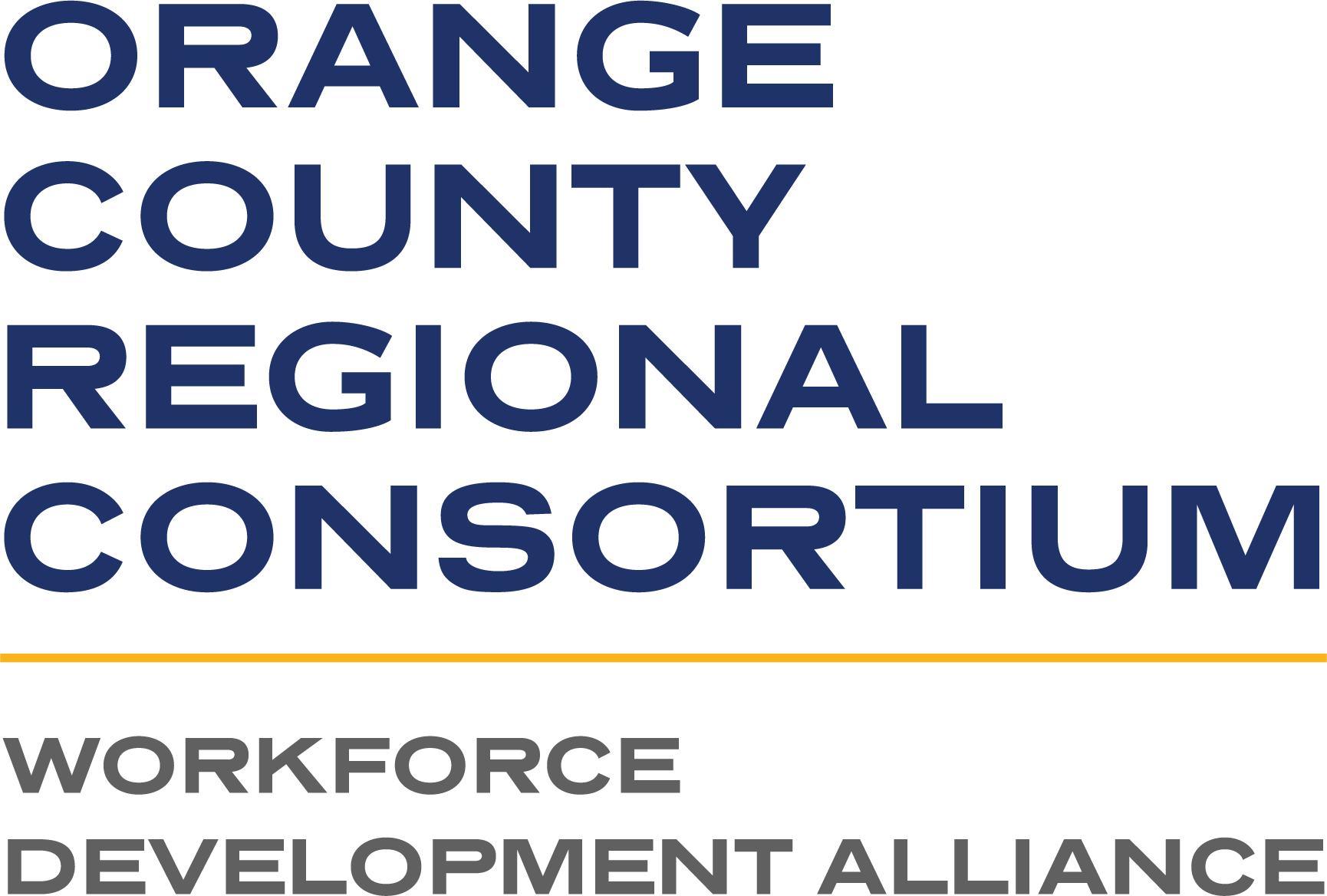About
Vision
The OCRC’s vision is to create a culture of completion, transfer and career-readiness among our students, through the lens of the California Community Colleges Chancellor's Office’s (CCCCO) “Vision for Success” by connecting our member community colleges/districts to collaborative opportunities within an ecosystem that includes (but isn’t limited to) K12 and four-year college and university partners, business and industry partners, and other stakeholders in the workforce development community of practitioners. In response to the CCCCO Vision for Success, the Orange County Regional Consortium (LAOCRC) supports local and regional decision makers with an increased capacity to measure regional progress toward goals of efficiency and effectiveness, while also improving their access to indicators that measure student/incumbent worker progress through the educational system.
Background
The OCRC is supported and sponsored by the Carl D. Perkins 1B grant with the purpose of connecting individuals and aligning programs and curriculum to the needs of business and industry. Our mission is to benefit the local economy by engaging, leveraging, and advancing special projects that better prepare students to meet regional workforce needs and find gainful employment.
The OCRC invites the input of businesses, non-profits, unions, government agencies and industry leaders to provide current market data and insight in order to improve the decision-making and responsiveness of our educational institutions and so our programs reflect changing market and technological trends. The OCRC provides professional development and in-service training to member college career education stakeholders and serves as a communication platform to and from the CCCCO Workforce and Economic Development Division (WEDD), a clearinghouse for the development and recommendation of new career education program certificates and associate degrees and, in some cases, bachelor’s degrees.
The OCRC convenes monthly meetings (except during the summer months of July and August), to support the business of the College Resource Leadership Council and to take action on items and initiatives related to regional career education.
Additionally, the OCRC’s Governance Council is comprised of the four district leaders who are convened in quarterly business meetings to help guide the region's career education goals and codify decisions on Strong Workforce Program (SWP) investments. Others serve as key stakeholders (presidents, vice presidents, deans, staff, and faculty) within the Governance Structure who also codify SWP recommendations to the Governance Council.
Key Initiatives
The OCRC strives to benefit the local economy engaging, leveraging, advancing, and using technology and innovation in the following ways:
Engage:
- Convene business, non-profit, and industry leaders to provide current market data and insight to regional community colleges in order to improve the decision-making and responsiveness of educational institutions to changing market and technological trends.
- Facilitate effective regional project initiation and completion by providing meeting spaces, including conference rooms, on-line meeting tools, phone conferences, and video conferences.
- Partner with key stakeholders in identifying economic and workforce development issues, clarifying curricular needs, identifying challenges, leveraging strengths, and facilitating training opportunities.
- Talent Development and Retention Directors develop regional collaborative communities that have specific objectives, timelines and outcomes for improvement of the region’s priority and emergent sectors.
Leverage:
- Maximize local efficiencies by convening regional stakeholders through advisory groups and providing briefings to educational and industry decision-makers.
- Leverage the insight and practical experience of the Academic Senate/Faculty structures in our region so that they receive early notice of trends in the data.
- Share best practices for regional projects based on the Common Core State Standards for K-12 educators, the regional consortium course approval process, and the Common Metrics Accountability Measures.
Advance:
- Produce measurable results which will be apparent in data collection efforts such as the California Partnership for Achieving Student Success2 (Cal-PASS2).
- Align the career education pathways for K-12 schools into our regional framework.
- Provide curricular support by providing detailed labor market information and connections.
Using Technology & Innovation:
To increase efficiency and effectiveness, technology will be used to enhance communication and improve productivity in the following ways.
- Email- Monthly e-newsletter (Constant Contact) to all participants which will not only include the dates and times of upcoming meetings, but also link source documents, appropriate videos, websites, and other information useful to participants.
- Social Media- notices of key meetings and events will be shared through the use of Twitter, Facebook, Google+, LinkedIn, Pinterest, and a special Regional Consortium blogsite.
- CTE Online Mapping Tool- this on-line system will map key business and industry needs, audit existing educational offerings at the K-12, community college, and four-year educational institutional level, and provide appropriate contact information regarding the teachers or instructors at each location.
- Data Tools - in partnership with the regional Management Information Systems (MIS) staff, develop strategies for consistent data collection standards such as LaunchBoard, WageTracker, and Salary Surfer.
Opportunities for Involvement
- JOIN the conversation by participating in the regional meetings, subscribe to the consortium newsletter to stay abreast of current events and resources, and further the conversation through our social media channels.
- CONTRIBUTE your talents and expertise on sub-committees based on the priority and emerging business sectors selected by our region
- CONNECT key business and industry leaders with the regional advisories to maximize regional effectiveness and opportunities to advance our collective missions.
